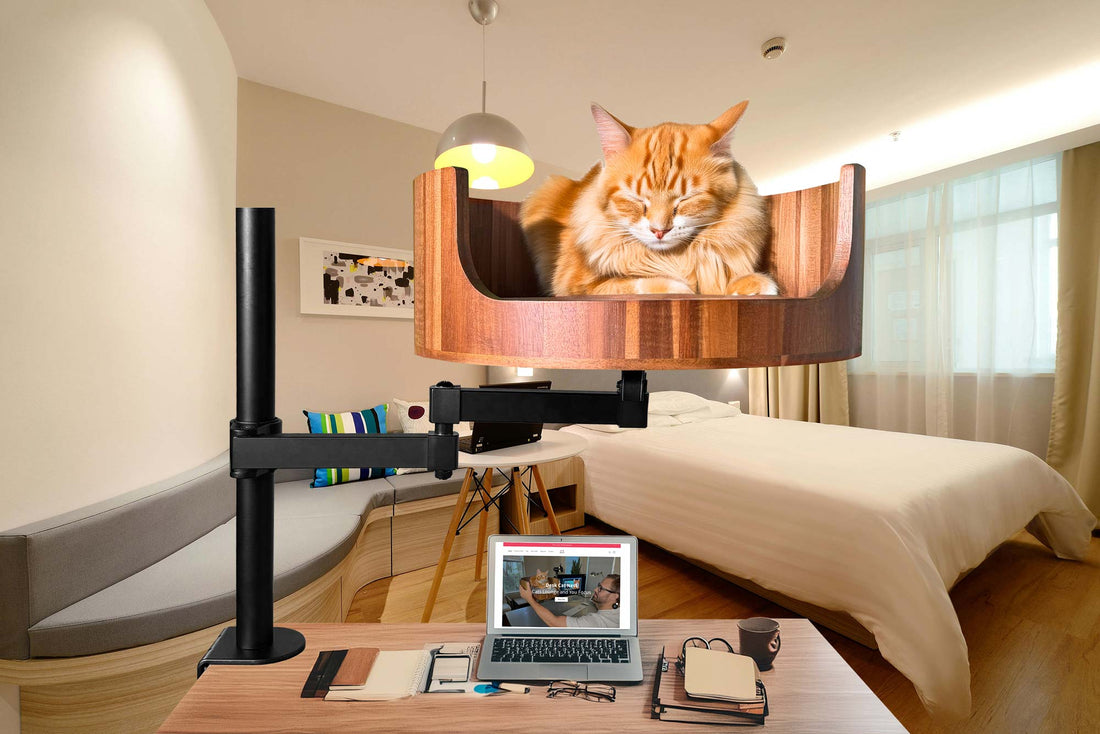
How to Tell if a Cat is Too Skinny: Key Signs to Watch For
Share
Is your feline friend looking a bit on the slim side? Determining whether a cat is too skinny can be a concern for many pet owners. In this article, we will explore the key signs to watch for in determining if your cat is underweight and provide helpful tips on how to address the issue.
One of the tell-tale signs of a skinny cat is visible ribs, spine, or hip bones. If your cat's bones are protruding noticeably, it may be a sign that they are too thin. Additionally, a cat that is too skinny may have a lack of energy or may appear lethargic. Other signs to look out for include a decrease in appetite, dull coat, and general weakness. To help your cat achieve a healthy weight, we will discuss proper feeding habits, potential health issues that could be causing weight loss, and ways to encourage weight gain in your feline companion. Stay tuned to learn more about how to tell if a cat is too skinny and how to help them achieve optimal health.
1. Feel your cat's ribs and spine regularly to determine if they are too prominent, indicating possible underweight.
2. Watch for a noticeable decrease in appetite or energy levels, as these could be signs of an unhealthy weight loss in your cat.
3. Look for a decrease in muscle mass or a sunken appearance in the eyes, which may indicate your cat is too skinny.
4. Consult with a veterinarian if you suspect your cat is underweight, as they can provide guidance on proper nutrition and any necessary health interventions.
5. Regular monitoring and proper care are essential to ensuring your cat maintains a healthy weight and overall well-being.
Body Condition Score
One way to determine if a cat is too skinny is by assessing their body condition score. This scoring system typically ranges from 1 to 9, with 1 being emaciated and 9 being obese. A cat that is too skinny may have prominent bones such as their ribs, spine, and hip bones. By running your hands over their body, you may be able to feel these bones easily. A healthy cat should have a slight layer of fat covering these areas, providing insulation and protection.
Loss of Muscle Mass
Another key sign that a cat is too skinny is a noticeable loss of muscle mass. Cats should have well-defined muscles, especially in their legs, shoulders, and back. If you notice that your cat's muscles appear less defined or have shrunk in size, it could be an indication that they are not getting enough nutrients or calories. Muscle wasting can occur due to conditions such as malnutrition, chronic illness, or old age.
Increased Appetite
A cat that is too skinny may exhibit an increased appetite, constantly seeking out food and eating more than usual. This can be a sign that they are not getting enough nutrients from their regular meals and are trying to compensate by eating more. It is important to monitor their food intake and weight closely, as sudden changes in appetite can also be a symptom of underlying health issues such as hyperthyroidism or diabetes.
Behavioral Changes
Changes in a cat's behavior can also indicate that they are too skinny. Cats that are underweight may become lethargic, less playful, or withdrawn. They may also exhibit signs of irritability, aggression, or restlessness. It is essential to observe your cat's behavior closely and consult with a veterinarian if you notice any significant changes, as these could be linked to their weight and overall health.
Frequently Asked Questions
How can I tell if my cat is too skinny?
One way to tell if your cat is too skinny is by feeling their ribs. If you can easily feel their ribs without much padding or flesh covering them, your cat may be underweight. Additionally, if you notice a significant decrease in their energy levels, or see a drastic change in their overall appearance, it may be a sign that your cat is too skinny.
What are some common causes of a cat being too skinny?
There are several reasons why a cat may be too skinny, including medical conditions such as hyperthyroidism, digestive issues, parasites, or dental problems. Stress, anxiety, or changes in their environment can also contribute to weight loss in cats.
Can a Desk Cat Nest help my skinny cat gain weight?
A Desk Cat Nest can provide a cozy and comfortable place for your skinny cat to relax and destress, which can help improve their overall well-being. However, it is important to consult with a veterinarian to address the underlying cause of your cat's weight loss and develop a proper treatment plan.
Should I be concerned if my cat is too skinny?
Yes, if you notice that your cat is too skinny, it is important to consult with a veterinarian as soon as possible. Sudden weight loss or being consistently underweight can be a sign of underlying health issues that require medical attention.
In conclusion, the Desk Cat Bed is a valuable choice for cat owners concerned about their feline being too skinny. This comfortable and cozy bed provides the perfect space for a cat to rest and relax, allowing them to maintain a healthy weight and overall well-being. With its durable construction and soft materials, the Desk Cat Bed is sure to be a favorite spot for any cat in need of a little extra comfort and support. Make the smart choice for your cat's health and happiness with the Desk Cat Bed.



















































